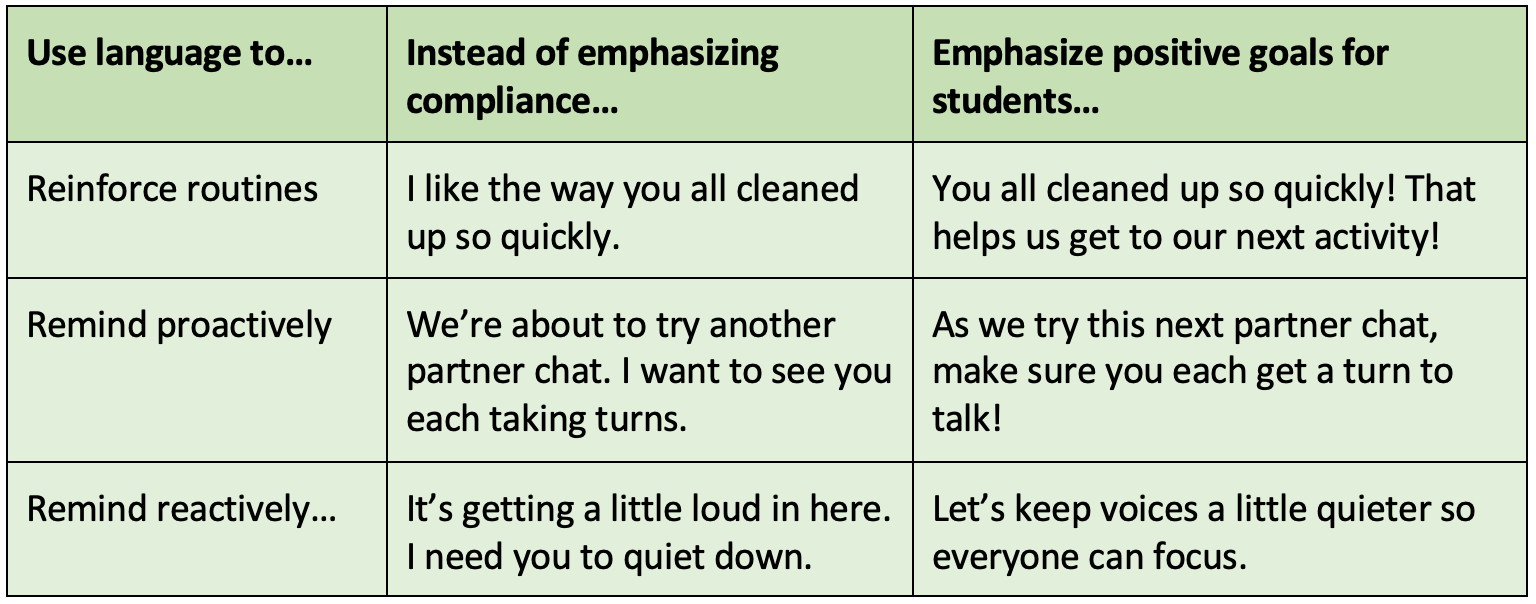Do Your Students Seem Young?

Do your students seem young this year? You’re not alone. In every single school I’m working in this year—with no exceptions—teachers are saying the same kinds of things.
This shouldn’t be surprising. Students always seem a bit young in the fall, and it often takes everyone a while to get back into the swing of school after a long summer break. But this year, as we continue to work to help children learn during a pandemic, things have been especially challenging.
Many kids have spent much of the past year and a half in a hybrid or remote learning environment. Some have had limited in-person interactions, barely seeing people outside of their immediate families. And for children who count on school as their safe space, they may have experienced additional trauma by being in chaotic or unsafe situations at home.
So, what can we do? Even if your eight graders are presenting more like sixth graders in some ways, you still have eighth grade curricular goals and learning expectations. Here are some ideas that might help. Of course, these are general suggestions, so consider which might work for the age(s) and grade(s) you teach.
Reduce Whole Class Instruction
In some classrooms I’m working in, students seem to struggle the most during whole class instruction. I’m especially seeing this in younger elementary grades.
So, consider doing less whole class teaching. For example, give students some independent work, and then meet up with small groups to teach lessons. Students might be better able to sustain attention and focus when in a small group.
Keep Lessons Short
When you do need to teach some whole class lessons, keep them short and sweet. One middle school teacher I’m working with said that in his science class, he’s trying to talk as little as possible and get his kids working as quickly as he can. He said that his students are great once they get working, so he’s trying to maximize that time.
Shorten Work Periods
You might expect that your students should be able to sustain attention for 30 minutes, but if you see them fading after 15, adjust your expectations. Consider having two 15-minute work sessions separated by a short game or activity. As students build stamina, you can extend work periods. Take your lead from your students to figure out what they can handle.
Assign Partners
We let kids choose partners so they can work with someone they feel comfortable with, but this often really only works well for some students. For kids who are struggling with social connection and interactions, having to find partners can boost anxiety. Take some of the load off by assigning partners and/or seating.
Keep Work Groups Small
It might be that students could benefit from a good bit of independent work time—where they can focus on the academic learning without having to manage interactions with others. Of course, many times it’s important and helpful for students to work with others. Consider keeping work groups small. Partnerships and trios can give students people to work with while also keeping social interactions manageable. Save larger group work for later in the year when your students are ready.
Reinforce Routines
In the first few weeks of school, you modeled routines and taught expectations. Chances are that your students could use some reminders. It’s still early in the year, after all! Let them know what they’re doing well. Use proactive and reactive reminders to jog students’ memories. When reinforcing and reminding, use language that connects with your goals for students—not language that implies that compliance or obedience are the goals. This helps you set a tone of respect and academic engagement while also reducing power struggles.

So, if your students seem a bit young right now, consider some of these pivots to meet them where they are. They can still be successful in school as long as we create learning environments that match their academic, social, and emotional needs!
Do your students seem young? Keep lessons short and reduce whole class instruction. Keep work groups small and assign partners. Meet kids where they're at! #SEL #edchat #firstweeksofschool
Author
-
Mike Anderson has been an educator for many years. A public school teacher for 15 years, he has also taught preschool, coached swim teams, and taught university graduate level classes. He now works as a consultant providing professional learning for teachers throughout the US and beyond. In 2004, Mike was awarded a national Milken Educator Award, and in 2005 he was a finalist for NH Teacher of the Year. In 2020, he was awarded the Outstanding Educational Leader Award by NHASCD for his work as a consultant. A best-selling author, Mike has written ten books about great teaching and learning. His latest book is Rekindle Your Professional Fire: Powerful Habits for Becoming a More Well-Balanced Teacher. When not working, Mike can be found hanging with his family, tending his perennial gardens, and searching for new running routes around his home in Durham, NH.
You may also like

Finding Time for a One-on-One Problem-Solving Conference
- October 23, 2024
- by Mike Anderson
- in Blog



